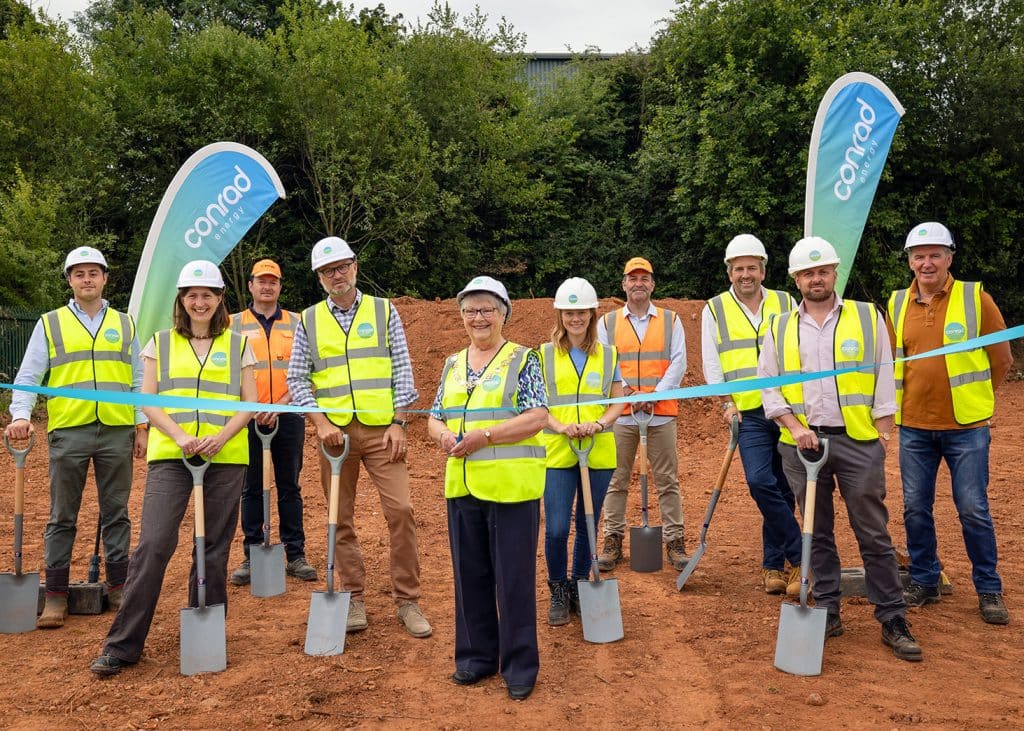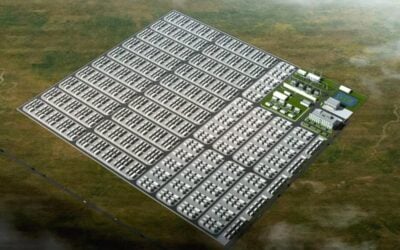
This edition of news in brief comes from another busy week for our colleagues covering the UK energy transition.
5 September 2022: Approval sought for three projects at Scottish Water sites
Enjoy 12 months of exclusive analysis
- Regular insight and analysis of the industry’s biggest developments
- In-depth interviews with the industry’s leading figures
- Annual digital subscription to the PV Tech Power journal
- Discounts on Solar Media’s portfolio of events, in-person and virtual
Developer Bluestone Energy has submitted three 69MW battery energy storage system (BESS) project proposals for Scottish Water sites in Renfrewshire.
The proposals, which have been submitted to the Scottish Government, will be situated at Scottish Water’s Laighpark Waste Water Treatment Works (WWTW), Stanely Water Treatment Works (WTW) and Linwood Waste Water Pumping Station (WWPS). Scottish Water is a corporation accountable to the public via the Scottish government, tasked with providing water and sewerage services.
Should the applications be successful, each site would gain 20 battery energy storage system units providing a combined capacity of 69MW.
Alongside the battery units, each site will have a control room to allow the operation and maintenance of the system as well as associated electrical infrastructure to facilitate a connection to the local electricity network. This would enable the decarbonisation of Scottish Water’s day-to-day operations whilst also developing flexibility and security of supply for the electricity system.
Bluestone Energy is developing a total of six battery energy storage systems across Scottish Water sites, including Laighpark WWTW, Stanely Water WTW and Linwood WWPS, which have a combined capacity of 403MW.
These projects form part of a joint development agreement with Macquarie Asset Management’s Green Investment Group to develop in excess of 2GW of battery energy storage capacity throughout the UK.
By George Heynes.
To read the full version of this story, visit Solar Power Portal.
7 September 2022: RES gets planning approval for 99.9MW BESS project in northeast England
Renewable energy firm RES has been granted permission to begin development of a 99.9MW battery energy storage system (BESS) project in Durham, northeast England.
The Spennymoor Energy Storage System project is set to be developed on land to the south of an existing electrical substation on Thinford Lane and will store electricity during periods when generation exceeds demand.
This energy will be released back to the grid network when demand exceeds generation helping to create grid stability in the region. In doing so, the project will facilitate the growing deployment of new wind, solar and other renewables supporting the transition to net zero in the UK.
The project is expected to also integrate the planting of new native woodland, species-rich grassland and the creation of a pond to feed food and shelter for a range of fauna species helping to restore biodiversity to the area.
Invertebrate boxes, hedgehog houses and bat boxes are also proposed with all of these measures leading to a biodiversity net gain of 25%.
“We are very pleased that Durham County Council has chosen to back this important infrastructure, which has been carefully sited and designed to optimise the land available for development,” said Alan McMahon, head of energy storage at RES.
By George Heynes.
To read the full version of this story, visit Solar Power Portal.
8 September 2022: Conrad Energy gets planning approval for 50MW BESS
Conrad Energy has gained planning permission for a 50MW two-hour (100MWh) battery energy storage system (BESS) in North Petherton, Somerset in Southwest England.
The site will be the developer’s biggest battery energy storage system yet. It is being designed using the local topography to conceal the scheme within the landscape.
In addition, planting and landscaping will be used to boost the local habitat, with an estimated biodiversity net gain score of 22.3% and 100% for hedgerow units.
“With biodiversity gain built into the design for this site from the start, we are delighted to have successfully achieved planning permission,” said Chris Shears, Conrad Energy’s chief development officer.
The site permission follows Conrad Energy kicking off construction of a 6MW/12MWh battery energy storage system in Somerset in August (pictured above). Its 15MW four-hour system in Plympton, Devon also recently gained planning approval, and its Larport in Herefordshire site was awarded planning approval in May.
Whilst in October 2021, the company signed a deal with GE Renewable Energy for the design, manufacture and supply of GE’s battery energy storage system, with Conrad looking to deploy 104MWh of the technology around the UK.
By Molly Lempriere.
This story first appeared on Solar Power Portal.
8 September 2022: The Renewables Infrastructure Group to buy 250MW portfolio
The Renewables Infrastructure Group (TRIG) is set to purchase development rights for 250MW of battery energy storage system (BESS) across three projects.
Three BESS projects will be developed in the North of England as part of the transaction. Two of the projects will be built with a total output of 165MW with a two-hour duration (130MWh capacity), which are both scheduled for grid connection and commencement of operations in 2024 and 2025.
The third project will be built further down the line in 2029. This will have 85MW output and will also have a two-hour duration. It is possible that construction date could be brought forward should demand increase.
The sites, which have been developed by and acquired from Aura Power Developments Limited, each have land rights, planning permission and grid connection agreements secured. Renewable Energy Systems (RES) is being contracted to progress the development of the projects through the procuring of equipment and construction.
By George Heynes.
To read the full version of this story visit Solar Power Portal.






